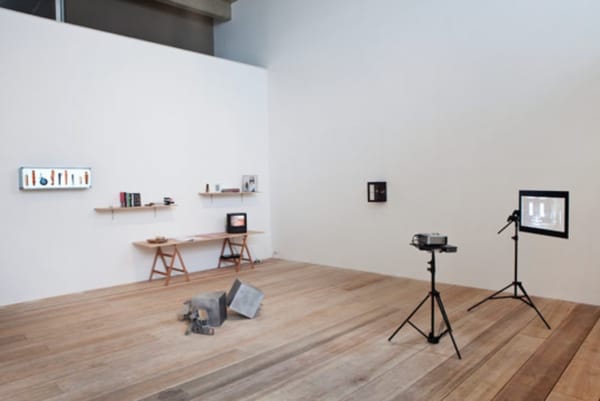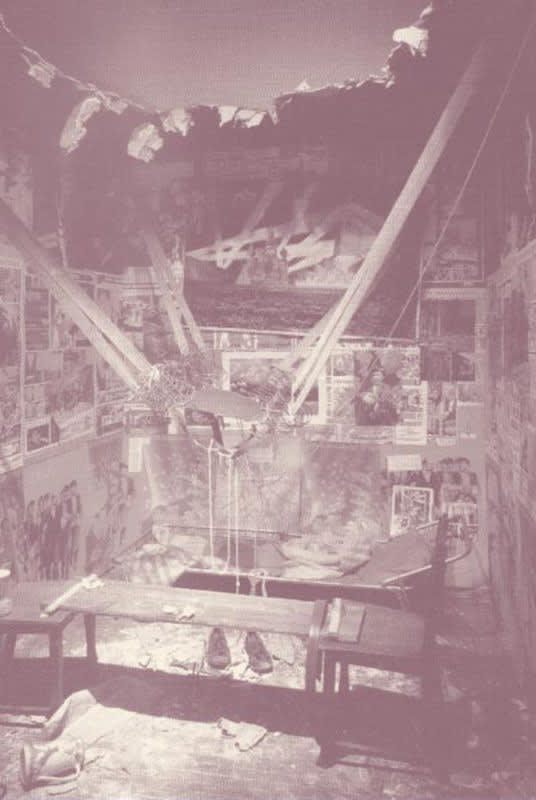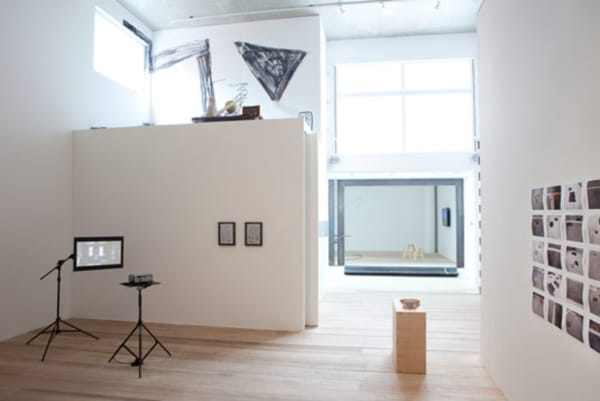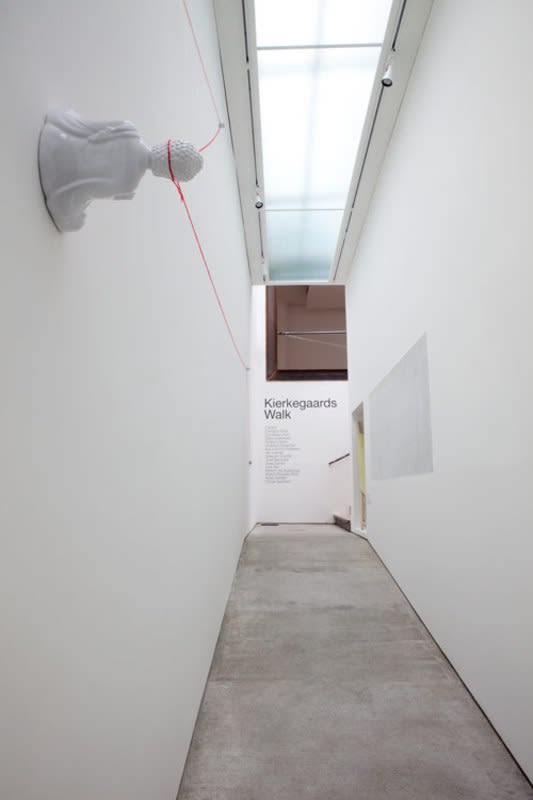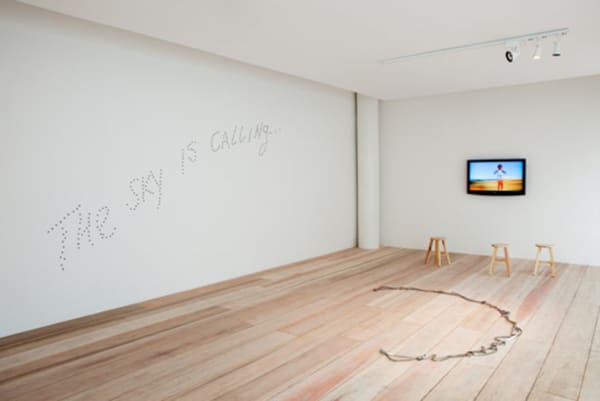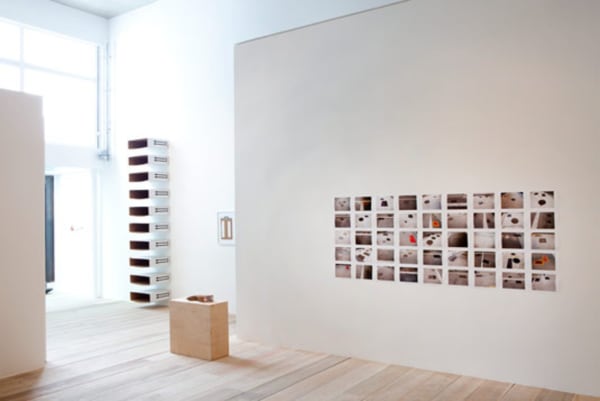KIERKEGAARDS WALK: CURATED BY JACOPO CRIVELLI
Horário de Funcionamento:
de segunda a sexta, das 10h30 às 19h e sábado das 11h às 16h
How Copenhagen ended. This way the museyroom. Mind your boots goan out. Phew!
James Joyce, Finnegans Wake
In the memories attributed to one of his pseudonyms, but which probably belong to him, Søren Kierkegaard once recounted how his father would not let him leave the house, worried as he was about the dangers of the city. To alleviate this imposed reclusion, the father would pace the bedroom with his son, telling him amazing tales of the world - that is, inventing for his son the very world that he was prevented from experiencing for himself. The no doubt austere nature of a child’s bedroom in Copenhagen, in the 1810s, opposed a runaway imagination, the creation of an extremely personal, free, fantastic and, ultimately, eminently artistic universe. We are left to imagine (for that is what this is about: imagination) the father and son’s rapid footsteps as they sought out the longest route between those four walls, much like the wolf that restlessly stalks back and forth in his cage, dreaming of the in_nite wilderness beyond.
Despite the topos of the “end of the grand narratives” that would characterize artistic creation after modernity, contemporary production brings us innumerable examples of works that do not shy away from the task of reinventing the world, of going back and founding it, even with the simplest and most precarious means. Clearly, this is about a fragmented world and an aphasic, non-linear narrative in which everything is what it is, but is also something else: everything is imbued with the weight of objects and the lightness of metaphors. Like the Kierkegaard’s “imaginary” stroll, artistic creation transposes the cold and naked domestic walls, manages to subvert the rules of poverty, silence and loneliness, and takes us, as in the famous prologue from Shakespeare’s Henry V, to see horses and kings when they are only talked of: Let us on your imaginary forces work:
(...)
Think, when we talk of horses, that you see them
Printing their proud hoofs i' the receiving earth;
For 'tis your thoughts that now must deck our kings,
Carry them here and there; jumping o'er times,
Turning the accomplishment of many years
Into an hour-glass...
Each of the works that comprise Kierkegaards Walk explores in its own way the paradox of a domestic, or at least familiar, situation, often marked by anonymity, loneliness, fragility or ephemerality, that becomes the starting point for unfathomable journeys of the imagination.
The title of the exhibition, which in turn is programmatically cryptic or even incomprehensible, ironically alludes to Joyce’s Finnegans Wake – probably the least read classic in the history of literature and an extremely personal, dense, fragmented and indecipherable work, an unbeatable example of the impossibility of still resorting to a classic narrative. Joyce’s separation of words from any meaning that might be familiar to us, rendering them into pure sounds and transforming them into something else is echoed by the way in which artistic intervention transforms apparently known objects and scenarios into something new, something never before seen.
The objects, videos and sculptures brought together by this exhibition point to the potentialities of daily life, they unveil the mystery hidden within the most banal objects and situations, ones we see so often that we almost don’t see them anymore. Drinking a glass of marble, sharing the dreams of a swarm of _ies, being startled by an extra bird in the samurai’s cage, discovering metaesquemas on the city streets, capturing the movement of a clock that seems to have stopped: here, all this is possible, perhaps even inevitable, because when we look at these objects, we only see what they want to be, what they want to say. And what they might want to say is that houses can no longer contain their furniture, much less their inhabitants: whomsoever has enough imagination can _y into space.
Jacopo Crivelli Visconti

